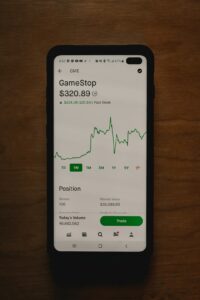The Causes and Effects of Slippage in the Forex Market
The foreign exchange market, also known as the forex market, is the largest and most liquid market in the world. It is where currencies are traded, allowing participants to buy, sell, and speculate on various currency pairs. However, like any financial market, the forex market is not without its challenges. One such challenge is slippage, which can have significant impacts on traders. In this article, we will explore the causes and effects of slippage in the forex market.
What is Slippage?
Slippage refers to the difference between the expected price at which a trade is executed and the actual price at which it is filled. In other words, it is the discrepancy between the price a trader requests and the price at which the trade is ultimately executed. Slippage can occur in both directions, resulting in either positive or negative slippage.
Causes of Slippage
1. Market Volatility: The forex market is highly volatile and can experience rapid price movements, especially during important news releases or economic events. When market volatility is high, there may not be enough liquidity available to fill trades at the desired price, leading to slippage.
2. Order Size: Large orders can also cause slippage. If a trader places an order that is significantly larger than the average trade size in the market, it may be difficult to find enough liquidity to fill the entire order at the desired price. As a result, the trade may be executed at different price levels, resulting in slippage.
3. Execution Speed: The speed at which an order is executed can also contribute to slippage. In fast-moving markets, delays in order execution can lead to significant price changes, causing trades to be filled at different prices than expected.
4. Market Depth: The depth of the market, or the amount of liquidity available at different price levels, can also impact slippage. If there is limited liquidity at the desired price, trades may be filled at less favorable prices, resulting in slippage.
Effects of Slippage
1. Increased Trading Costs: Slippage can increase trading costs for traders. When trades are filled at prices different from the expected ones, it can result in additional transaction costs, such as wider spreads and higher commissions.
2. Reduced Profitability: Slippage can negatively impact a trader’s profitability. If a trade is filled at a worse price than anticipated, it may reduce potential profits or increase potential losses. This is particularly true for traders who rely on short-term trading strategies or scalping, where small price movements can significantly impact overall profitability.
3. Order Rejections: In some cases, slippage can lead to order rejections. If the slippage is significant and exceeds the trader’s predefined parameters, the order may be rejected by the broker. This can be frustrating for traders, as it may prevent them from entering or exiting positions at their desired prices.
4. Emotional Impact: Slippage can also have psychological effects on traders. When trades are filled at different prices than expected, it can lead to feelings of frustration, disappointment, or even anger. These emotional reactions can impact a trader’s decision-making process and overall trading performance.
Managing Slippage
While it may not be possible to completely eliminate slippage, there are several strategies that traders can employ to mitigate its impact:
1. Using Limit Orders: Placing limit orders instead of market orders can help reduce slippage. Limit orders allow traders to specify the maximum or minimum price at which they are willing to buy or sell a currency pair. By setting a limit price, traders can avoid being filled at unfavorable prices.
2. Monitoring News and Economic Events: Being aware of upcoming news releases and economic events can help traders anticipate potential market volatility and slippage. By adjusting their trading strategies or avoiding trading during high-impact events, traders can reduce the risk of slippage.
3. Choosing the Right Broker: Selecting a reputable broker with reliable order execution and deep liquidity can also help minimize slippage. Traders should do their research and choose a broker that offers competitive spreads, fast execution speeds, and a robust trading infrastructure.
Conclusion
Slippage is a common occurrence in the forex market and can have significant effects on traders. It is caused by factors such as market volatility, order size, execution speed, and market depth. Slippage can increase trading costs, reduce profitability, lead to order rejections, and have psychological impacts on traders. However, by employing strategies such as using limit orders, monitoring news events, and choosing the right broker, traders can manage and mitigate the impact of slippage in their forex trading activities.





